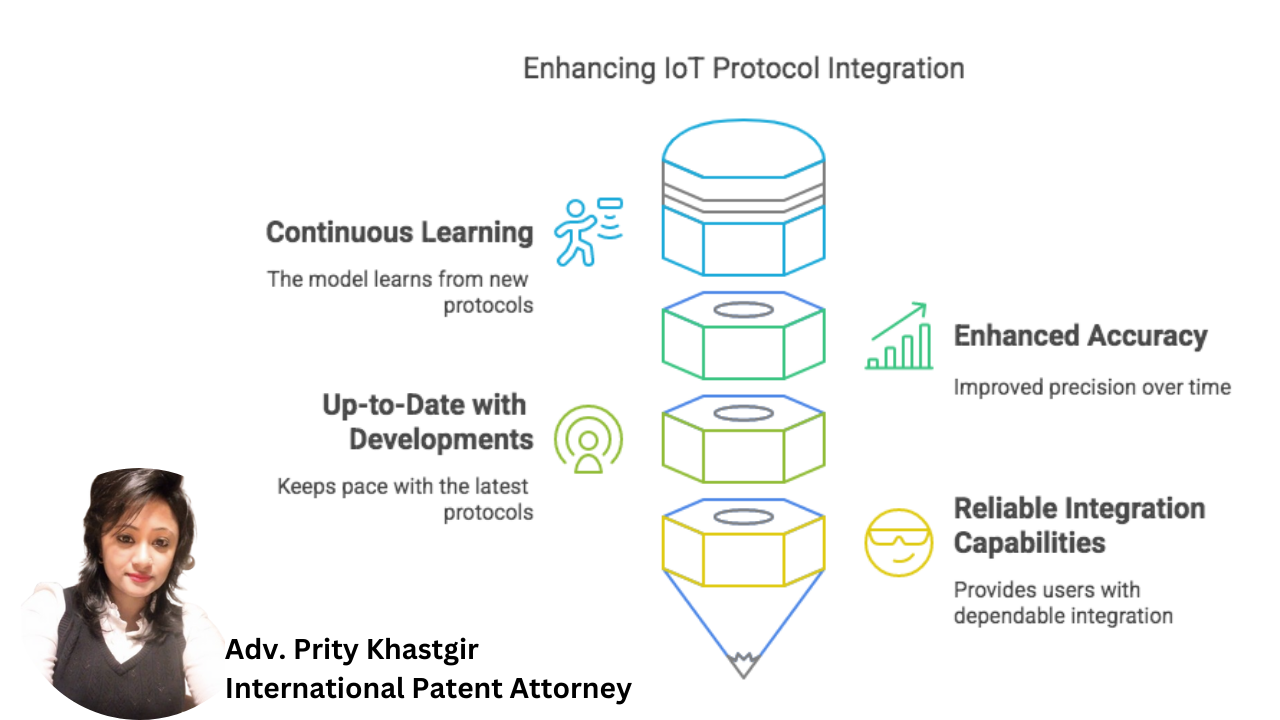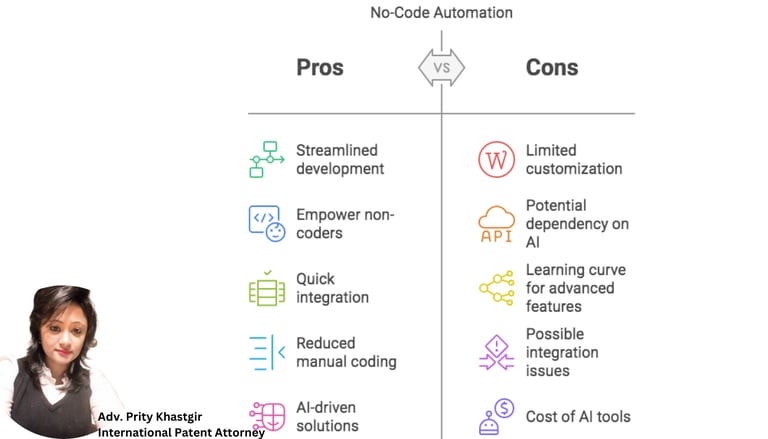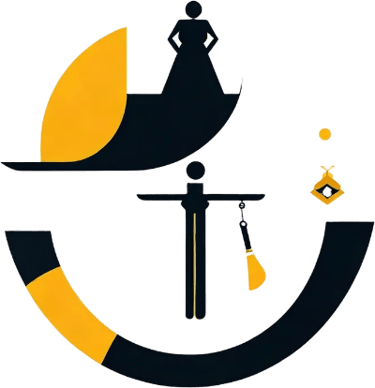🛡️ Protect your ideas and inventions with the guardians of intellectual property.
⚖️ Our team of expert patent attorneys marshals your innovations through the complex patent landscape💡
Automated Internet of Things (IoT) Protocol Adaptation System Using a Large Model: Deepseek
Save Time: This invention streamlines the integration of diverse Internet of Things (IoT) devices by automating communication protocol parsing, eliminating manual coding.
Core Components of the Invention
Knowledge Base:
Stores structured information about various IoT communication protocols (e.g., Message Queuing Telemetry Transport (MQTT), Constrained Application Protocol (CoAP), Zigbee).
Acts as a repository of protocol rules, data formats, and device interaction patterns.
Large Model (Artificial Intelligence (AI) Engine):
A pre-trained language model (e.g., Generative Pre-trained Transformer (GPT), Bidirectional Encoder Representations from Transformers (BERT)) fine-tuned to understand technical IoT documentation.
Converts unstructured protocol documents into actionable parsing logic.
Protocol Parsing Framework:
A modular architecture generated by the large model, defining how to interpret and process protocol-specific data.
Includes rules for data extraction, validation, and transformation.
Plugin System:
Encapsulates parsing logic into lightweight, deployable plugins compatible with IoT platforms.
Enables dynamic addition/updating of protocols without platform downtime.
Remote Dictionary Server (Redis) Cache:
Temporarily stores frequently accessed plugins and parsing rules for low-latency performance.
Patent Workflow
Protocol Upload:
A user uploads a communication protocol document (e.g., Portable Document Format (PDF), Application Programming Interface (API) specification) to the IoT platform.
Document Preprocessing:
The system extracts text/data from the document and structures it into a machine-readable format (e.g., JavaScript Object Notation (JSON)).
Large Model Processing:
The model analyzes the document using Natural Language Processing (NLP) to identify protocol syntax, commands, and data fields.
Generates a protocol parsing framework tailored to the document’s requirements.
Plugin Generation:
The framework is packaged as a plugin and stored in a database.
Plugins are tagged for easy retrieval (e.g., by protocol type or device vendor).
On-Demand Parsing:
When a device connects, the IoT platform checks the database for the relevant plugin.
The plugin is loaded into Redis for rapid access.
Incoming device data is automatically decoded using the plugin’s rules—no manual coding needed.
Result Output:
Parsed data is standardized (e.g., into JSON or eXtensible Markup Language (XML)) and forwarded to applications for analytics, dashboards, or control systems.


Key Innovations
No-Code Automation:
Eliminates manual parser coding by using AI to convert protocol docs into ready-to-use plugins.Dynamic Scalability:
New protocols are integrated by uploading documents—ideal for heterogeneous IoT ecosystems.Efficiency:
Redis caching reduces latency, critical for real-time IoT applications (e.g., industrial sensors).Adaptability:
The large model continuously learns from new protocols, improving accuracy over time.
Importance of Patent Description
During the patent examination stage, the patent description becomes more critical than the patent claims. The patent description provides essential context and detailed information about the invention, enabling patent examiners to understand its novelty and non-obviousness. By offering various embodiments, patent applicants can illustrate different aspects of their invention, which can be pivotal in addressing any objections raised during patent examination.
Flexibility in Amending Patent Claims
One significant advantage of the examination process in India is the option to amend patent claims during the patent examination phase. This flexibility allows patent applicants to respond to feedback from patent examiners effectively. By refining patent claims based on the insights gained during patent examination, inventors can enhance their patent applications' chances of approval while ensuring that their inventions are adequately protected. The combination of early examination requests, the emphasis on comprehensive patent descriptions, and the ability to amend patent claims makes the patenting process in India more efficient and adaptable for patent applicants in 2025. This strategic approach helps inventors navigate potential challenges and secure their innovations effectively.


Manual protocol branching? DeepSeek’s neural networks handle 10,000+ conditional paths—without a single line of code


Although, the traditional patent process in India was often a lengthy ordeal, taking years to complete. This delay posed a substantial barrier for inventors, particularly for startups and small businesses that rely on timely patent protection to safeguard their innovations. However, with the introduction of the fast-track patent process, these entities can now secure patent protection in just a matter of months.
This expedited process not only protects their innovations but also enables them to capitalize on market opportunities swiftly. The ability to obtain patents quickly is crucial in today's fast-paced business environment, where the first mover advantage can significantly impact a company's success.
Our team
Our strength lies in our individuality. Set up by Advocate Prity Khastgir, the team is dedicated to empowering innovators by simplifying the patent process and ensuring that startups and small businesses can secure their inventions quickly and efficiently.
We focus on facilitating rapid access to patent protection, allowing our IP clients to take advantage of their innovations and succeed in a competitive landscape. With our extensive IP expertise in the fast-track patent process, we are committed to nurturing a dynamic environment of creativity and entrepreneurship, helping our clients bring their ideas to life.


Adv. Prity Khastgir
Registered Patent Attorney since 2007


Adv. Shweta Shalini
Senior Associate


Yashvendra Pandey
Head, Operations
Patenting in India & US
Expert patent searches for innovative business solutions by international patent lawyers and registered patent agents having expertise to perform different patentability searches.
The materials on this website are made available for informational purposes only, and do not constitute legal advice. The receipt of information contained on this website does not create an attorney-client relationship.
PATENT Value PROPOSITION
+91-9312315656
SATELLITE OFFICES
Intellectual Property Rights SERVICES


IT CORNER GLOBAL SERVICES
© 2017-2026 and BEYOND. All rights reserved.
Unauthorized copying, reproduction, distribution, or commercial use of this content is prohibited. The views and analyses expressed herein regarding China, India, and Foxconn are proprietary and may not be reproduced without explicit written permission from the copyright holder. Infringement will lead to legal action under #DAO.
#TelecomPatents #InnovationInTelecom #PatentStrategy #IntellectualProperty #TelecomSector #Foxconn #PatentDrafting #EssentialPatents #ChinaTelecomStrategy #IndiaIPR #IPRInTelecom #TelecomInnovation #SustainableTelecom #FutureOfTelecom #DigitalInfrastructure #PatentLandscape #GlobalTelecom #IntellectualCapital #TelecomResearch #PatentQuality #TelecomSustainability #TechPatents #TelecomManufacturing #IPRManagement #TelecomEngineering #PatentFiling
